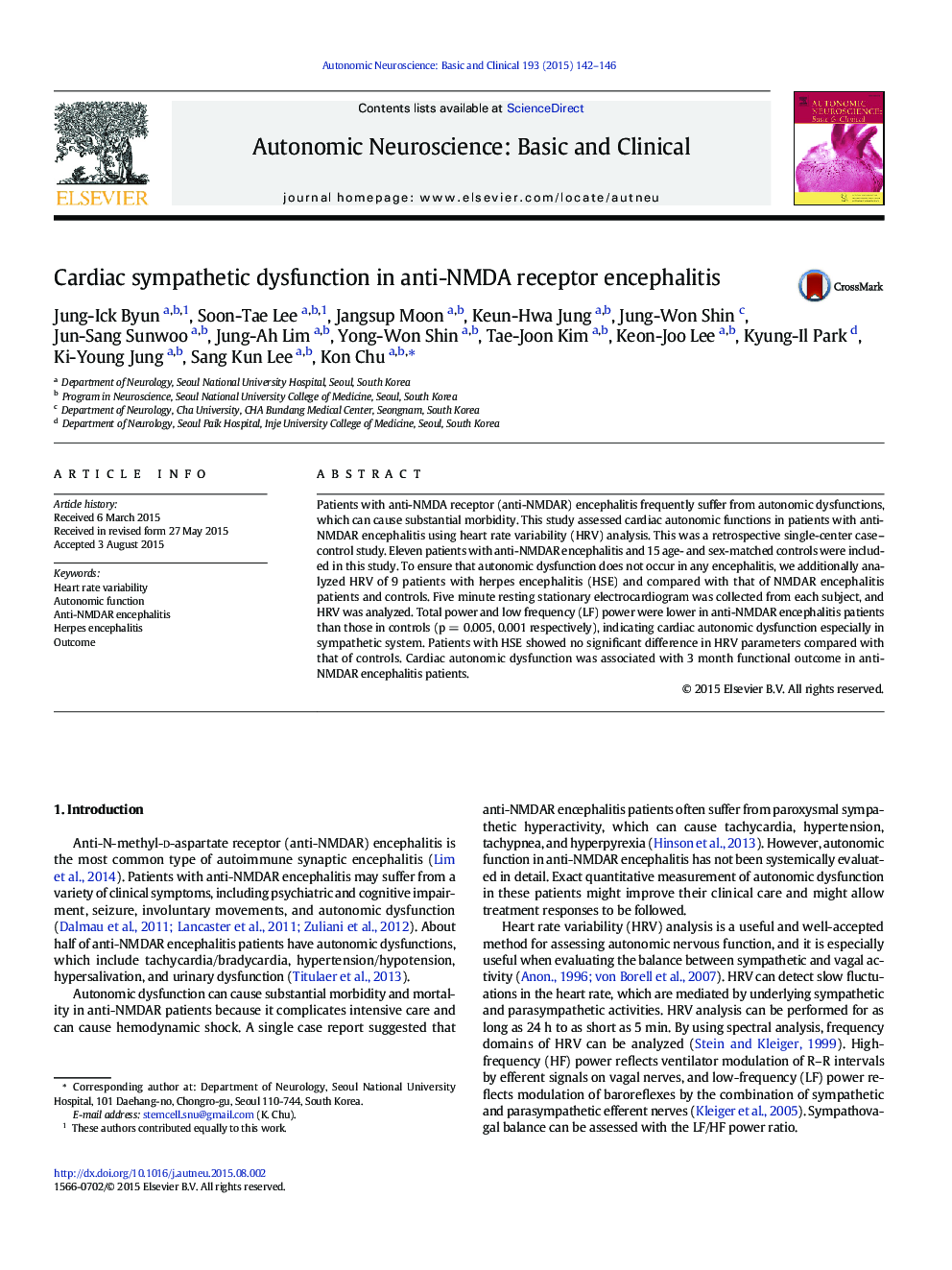| Article ID | Journal | Published Year | Pages | File Type |
|---|---|---|---|---|
| 6003930 | Autonomic Neuroscience | 2015 | 5 Pages |
â¢HRV analysis revealed cardiac autonomic dysfunction in anti-NMDAR encephalitis.â¢Reduced sympathetic function was prominent in anti-NMDAR encephalitis patients.â¢Autonomic dysfunction was associated with functional outcome in the patients.
Patients with anti-NMDA receptor (anti-NMDAR) encephalitis frequently suffer from autonomic dysfunctions, which can cause substantial morbidity. This study assessed cardiac autonomic functions in patients with anti-NMDAR encephalitis using heart rate variability (HRV) analysis. This was a retrospective single-center case-control study. Eleven patients with anti-NMDAR encephalitis and 15 age- and sex-matched controls were included in this study. To ensure that autonomic dysfunction does not occur in any encephalitis, we additionally analyzed HRV of 9 patients with herpes encephalitis (HSE) and compared with that of NMDAR encephalitis patients and controls. Five minute resting stationary electrocardiogram was collected from each subject, and HRV was analyzed. Total power and low frequency (LF) power were lower in anti-NMDAR encephalitis patients than those in controls (p = 0.005, 0.001 respectively), indicating cardiac autonomic dysfunction especially in sympathetic system. Patients with HSE showed no significant difference in HRV parameters compared with that of controls. Cardiac autonomic dysfunction was associated with 3 month functional outcome in anti-NMDAR encephalitis patients.
